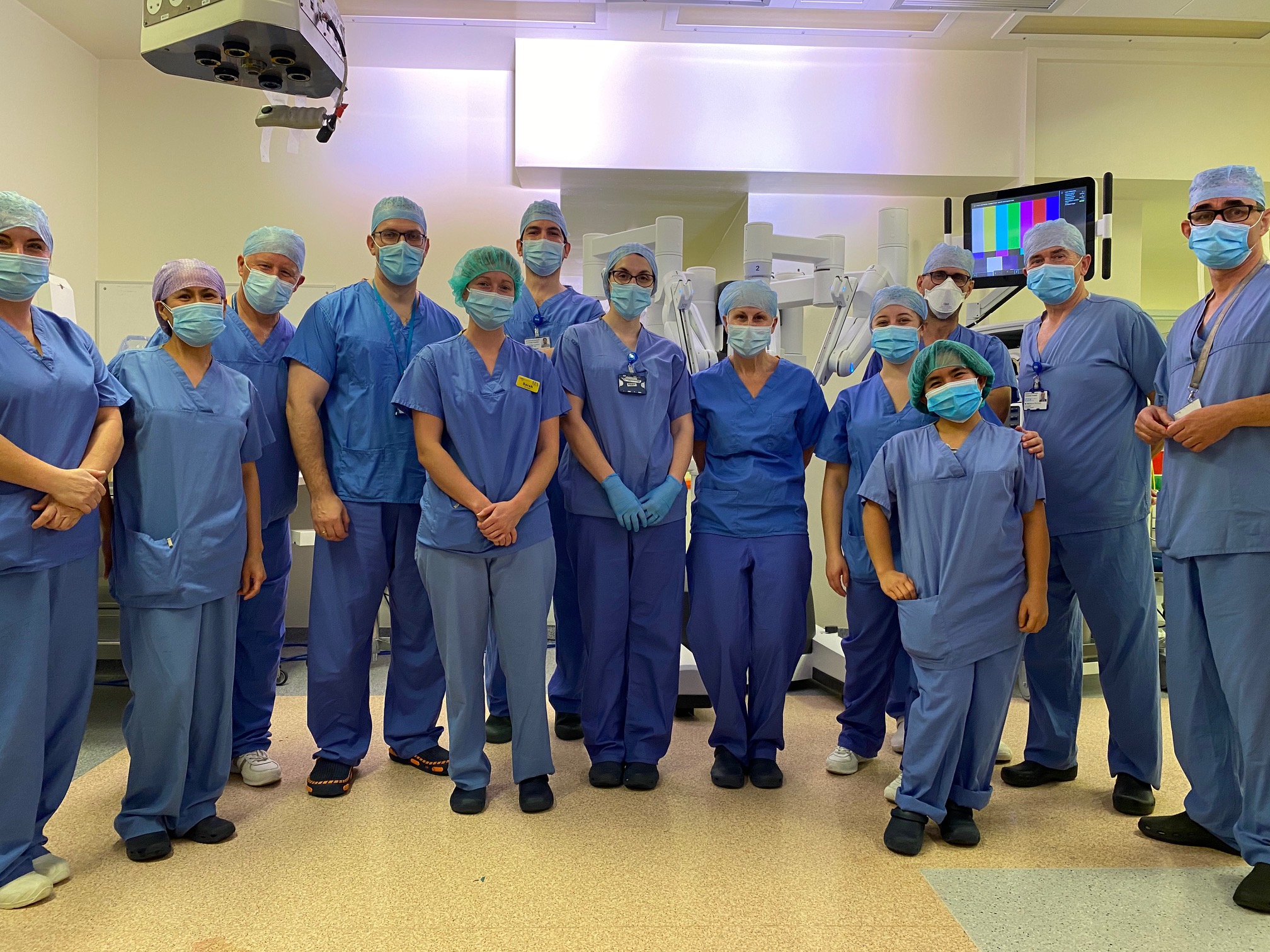Two new surgical robots are helping to deliver more cutting-edge treatments at the Norfolk and Norwich University Hospital to improve patient care.
The expansion of robotic-assisted surgery – thanks to a £1m donation from the N&N Hospitals Charity – has enabled more patients to receive minimally invasive surgery and improve recovery times.
The hospital has been using a robot for urological surgery for the last four years and carrying out robotic colorectal procedures over the last two years. This robot was replaced by two newer Da Vinci models over the summer.
This investment has enabled the Trust to become one of the first in the country to enable thoracic patients to benefit from robotic-assisted surgery and the gynaecology cancer team are now also using the robots.
Thoracic Consultant Vasileios Kouritas said the pioneering surgery was helping patients to recover quicker and spend less time in hospital.
“We can use the robots for all patients suitable for keyhole thoracic surgery across a range of conditions, both cancerous and non-cancerous. The technique is highly precise as the robotic instruments are easy to guide using 3D video and offer great dexterity, mimicking my hand movements. This allows me, with the help of my team, to access areas that are difficult or even impossible to approach using traditional keyhole techniques, such as the diaphragm and masses in the apex of the lungs. Fewer incisions are required to reach the site and, thanks to the cameras and magnification, the view is much better when carrying out the procedure traditionally.
“I’ve found that patients are very positive about being offered robotic surgery and are grateful to have the opportunity – especially as most are well enough to return home on the same day.”
Consultant Tim Duncan and the Gynaecology Cancer team have also used one of the two new robots to perform laparoscopic surgery. In order to perform the first surgery, the team were assisted by nurses from Urology, who already have significant experience of robotic surgery.
He added: “In our department, we have a long history of using minimally-invasive surgery to provide high-quality treatment with improved post-operative outcomes. Robotic surgery represents advancement in this form of surgery, allowing increasingly complex procedures to be performed. Thanks to the robot, operating times can be reduced from five to three hours and patients will be in less pain when they are recovering.
“Initially, around three operations per week will now be conducted by our team using the robot and there are plans to extend the number of surgeons in our department who are trained to use the robot. This will mean we can deliver the advantages of robotic surgery to a wider group of patients, in particular those with endometrial cancer.”
Picture: The thoracic surgery team at NNUH







